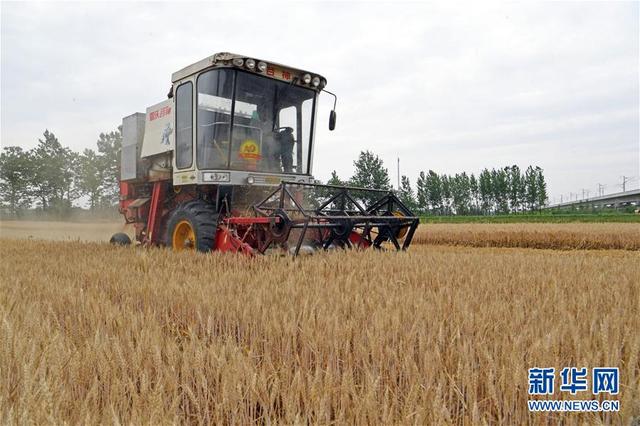

Calling the issue of food waste shocking and distressing, General Secretary of the Communist Party of China (CPC) Central Committee Xi Jinping stressed the need to enhance legislation and supervision, take effective measures, and establish a long-term mechanism to prevent food waste.

(Photo/Xinhua)
It is necessary to further enhance public awareness of the issue, effectively cultivate thrifty habits and foster a social environment where waste is shameful and thriftiness is applaudable, Xi said.
Food is the first need of the people. Chinese people have always cherished the country’s long-standing food culture. However, in today’s highly developed catering industry, the issue of food waste has become more prominent.
Data shows that the per capita amount of food left uneaten per meal came to 93 grams in China in 2018, a waste rate of 11.7 percent. According to survey data, Chinese consumers wasted roughly 17 to 18 million tons of food each year from 2013 to 2015, enough to feed 30 to 50 million individuals annually.
Though China has reaped bumper grain harvests for years, awareness of the possibility of a food security crisis is still necessary. The impact of the COVID-19 pandemic this year has sounded the alarm, Xi noted.
Xi has attached great importance to food security and called for the promotion of the social custom of practicing thrift and opposing waste. He has also emphasized the need to stop food waste on many occasions.
Following the 18th CPC National Congress, China launched the “Clear your plate” campaign and issued a guideline calling for an end to food waste at official activities and practicing thrift in canteens.
Although the situation has improved, especially with regard to the trend of using public money in excessive spending on food, food waste is still a rampant issue in some places, particularly in restaurants, as well as canteens of enterprises, public institutions, state organs and schools.
On the dining plate, every single grain is the result of someone’s hard work. Although reverence for food is a long-held tradition in Chinese culture, food waste persists despite repeated efforts to curb it. The reasons behind this trend include some people’s desire for ostentation and extravagance and lack of awareness of thrift and healthy diets, as well as the country’s lack of restrictive measures and punishment mechanisms in this regard.
To resolutely implement the instructions given by General Secretary Xi Jinping, all departments and local governments must take the dangers of food waste seriously, roll out stronger measures and make greater efforts to ensure the instructions are carried out.
While it is necessary to use legislation to impose rigid constraints on those who are used to wasting food, it’s even more important to foster a social atmosphere in which frugality is applauded and wastefulness is scorned.
Not long ago, the United Nations issued this year’s State of Food Security and Nutrition in the World report, warning that the world stands on the brink of a food crisis worse than any seen for at least 50 years. The report estimates that 25 countries will face a risk of severe hunger and 690 million people will go hungry this year due to a double hit from the COVID-19 pandemic and a plague of locusts.
China, a large country with 1.4 billion people, is confident that it will secure its “rice bowl” in any situation as long as the country continues to improve grain production, practice thrift and oppose waste.
 Fire brigade in Shanghai holds group wedding
Fire brigade in Shanghai holds group wedding Tourists enjoy ice sculptures in Datan Town, north China
Tourists enjoy ice sculptures in Datan Town, north China Sunset scenery of Dayan Pagoda in Xi'an
Sunset scenery of Dayan Pagoda in Xi'an Tourists have fun at scenic spot in Nanlong Town, NW China
Tourists have fun at scenic spot in Nanlong Town, NW China Harbin attracts tourists by making best use of ice in winter
Harbin attracts tourists by making best use of ice in winter In pics: FIS Alpine Ski Women's World Cup Slalom
In pics: FIS Alpine Ski Women's World Cup Slalom Black-necked cranes rest at reservoir in Lhunzhub County, Lhasa
Black-necked cranes rest at reservoir in Lhunzhub County, Lhasa China's FAST telescope will be available to foreign scientists in April
China's FAST telescope will be available to foreign scientists in April "She power" plays indispensable role in poverty alleviation
"She power" plays indispensable role in poverty alleviation Top 10 world news events of People's Daily in 2020
Top 10 world news events of People's Daily in 2020 Top 10 China news events of People's Daily in 2020
Top 10 China news events of People's Daily in 2020 Top 10 media buzzwords of 2020
Top 10 media buzzwords of 2020 Year-ender:10 major tourism stories of 2020
Year-ender:10 major tourism stories of 2020 No interference in Venezuelan issues
No interference in Venezuelan issues
 Biz prepares for trade spat
Biz prepares for trade spat
 Broadcasting Continent
Broadcasting Continent Australia wins Chinese CEOs as US loses
Australia wins Chinese CEOs as US loses